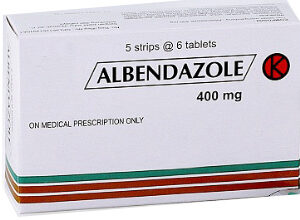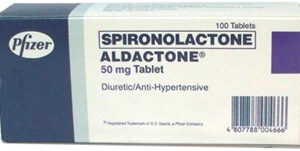Medication Overview
Aldactone, generically known as spironolactone, is a pharmaceutical formulated to combat fluid retention in individuals with congestive heart failure, cirrhosis of the liver, and kidney disorders. Additionally, this medication functions as an adjunct to treat hypertension (high blood pressure), and is commonly used in the management of hyperaldosteronism and certain cases of severe acne.
Indications and Usage
Aldactone’s key indication lies in its diuretic properties, used chiefly for edema stemming from a variety of medical conditions. Its utilization extends to the treatment of hypertension, often in combination with other antihypertensive agents, providing a synergistic approach to blood pressure control. This drug also sees therapeutic employment in counteracting hyperaldosteronism, where it counterbalances the excess production of aldosterone — an adrenal hormone responsible for regulating salt and water balance in the body.
Dosage and Administration
The recommended dosage of Aldactone varies based on the disorder being treated. For edema management, initial administration may start between 25 mg to 100 mg daily, with adjustments based on patient response and electrolyte balance. In the case of hypertension, initial doses usually hover around 50 mg to 100 mg per day, with periodic evaluations for possible dose alterations. Patients suffering from hyperaldosteronism typically start with 100 mg to 400 mg daily. It’s imperative to adhere to the medical advice given by healthcare providers and to never self-adjust the dosage.
Contraindications
Usage of Aldactone is contraindicated in individuals with known hypersensitivity to spironolactone, those with hyperkalemia (elevated levels of potassium in the blood), as well as patients with Addison’s disease, or with severe kidney impairment where renal function is inadequate. Moreover, concurrent use with eplerenone is not advised.
Warnings and Precautions
Special attention must be directed at the risk of hyperkalemia, especially in patients concurrently receiving ACE inhibitors or angiotensin receptor blockers. Regular monitoring of serum electrolytes is critical to detect any abnormal shifts. Caution is also advised when treating patients with renal insufficiency or diabetes, as they are at an increased risk for developing elevated serum potassium levels. Furthermore, patients with impaired hepatic function should be treated with relative caution as metabolic changes could alter the drug’s effect.
Drug Interactions
Concurrent use of Aldactone with certain drugs can lead to increased or decreased efficacy of treatment or raise the likelihood of adverse events. Potassium-sparing diuretics, potassium supplements, and drugs that elevate blood potassium levels can significantly raise the risk of hyperkalemia. Conversely, certain antihypertensives may have their effects potentiated by Aldactone. It is crucial to inform healthcare providers about all medications, supplements, and herbal products being used.
Adverse Reactions
While helping to manage various conditions, Aldactone can induce unfavorable responses. Some frequently reported side effects include, but are not limited to, electrolyte imbalances, gastrointestinal disturbances, dizziness, and rashes. Less common but more severe reactions might encompass hematologic abnormalities, hepatic dysfunction, or allergic manifestations. If any severe side effects or signs of an allergic reaction occur, immediate medical attention should be sought.
Additional Safety Information
Patient assessment should be thorough, with considerations of their medical history before initiating Aldactone therapy. Women should be apprised of the potential for menstrual irregularities or breast tenderness, while men may experience gynecomastia. Prompt reporting of significant alterations in fluid intake or weight should be encouraged.
Clinical Pharmacology
Spironolactone, the active ingredient in Aldactone, acts as both a diuretic and an antihypertensive agent. It achieves its therapeutic action by antagonizing aldosterone receptors in the kidneys, promoting excretion of sodium and water while conserving potassium. Its pharmacodynamics include a relatively swift onset of diuretic action, typically within 2 to 5 days, and a notable duration of effect.
Patient Counseling Information
Consultation with a healthcare provider is vital for understanding the therapeutic nuances of Aldactone use. Patients should receive guidance about potential side effects, the importance of regular blood tests, and what they should do in case of missed doses. Instruction about avoiding high potassium diets and the necessity of maintaining regular check-ups are also instrumental for optimal therapy management.
How to Store Aldactone
The proper storage of Aldactone is critical for maintaining its efficacy. The medication should be kept at room temperature, away from excess moisture and heat. To preserve its integrity, the drug needs to be stored in its original container, tightly sealed, out of reach of children and pets.
Frequently Asked Questions
Patients often inquire about the duration of treatment with Aldactone, to which the answer varies based on the particular medical condition and response to therapy. Questions regarding the management of skipped doses are also common, with the general guideline being to take the missed dose as soon as it is remembered, unless it is almost time for the next scheduled dose. Continual dialogue with a healthcare provider is encouraged to address any uncertainties or concerns.
References
Extensive research and clinical trials provide the basis for the detailed information surrounding Aldactone. Peer-reviewed studies, product labeling, and prescriber’s guidelines serve as resources to compile comprehensive knowledge on the drug’s use, safety profile, and pharmacological properties. Acknowledging these references is crucial in understanding the scope and limitations of the medication.




Reviews
There are no reviews yet.